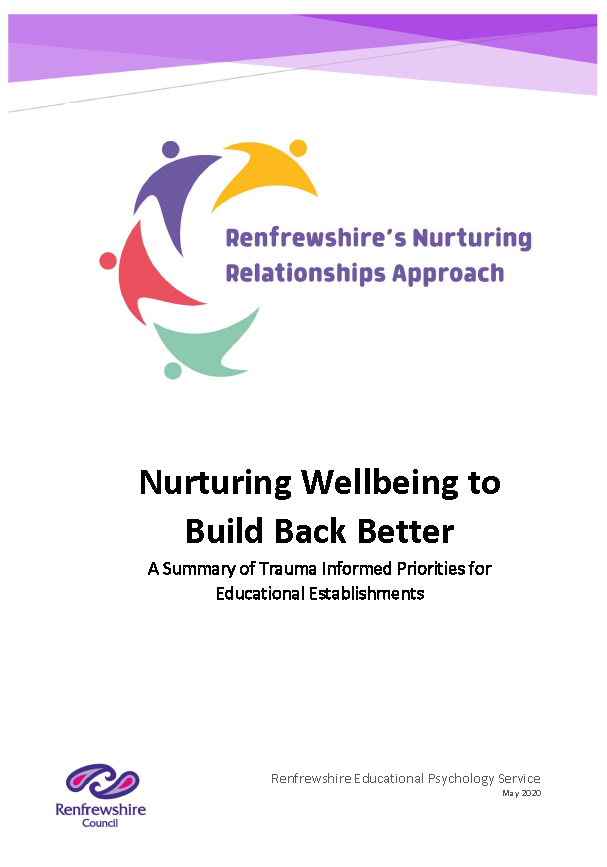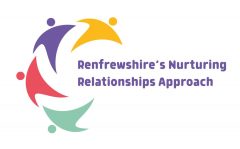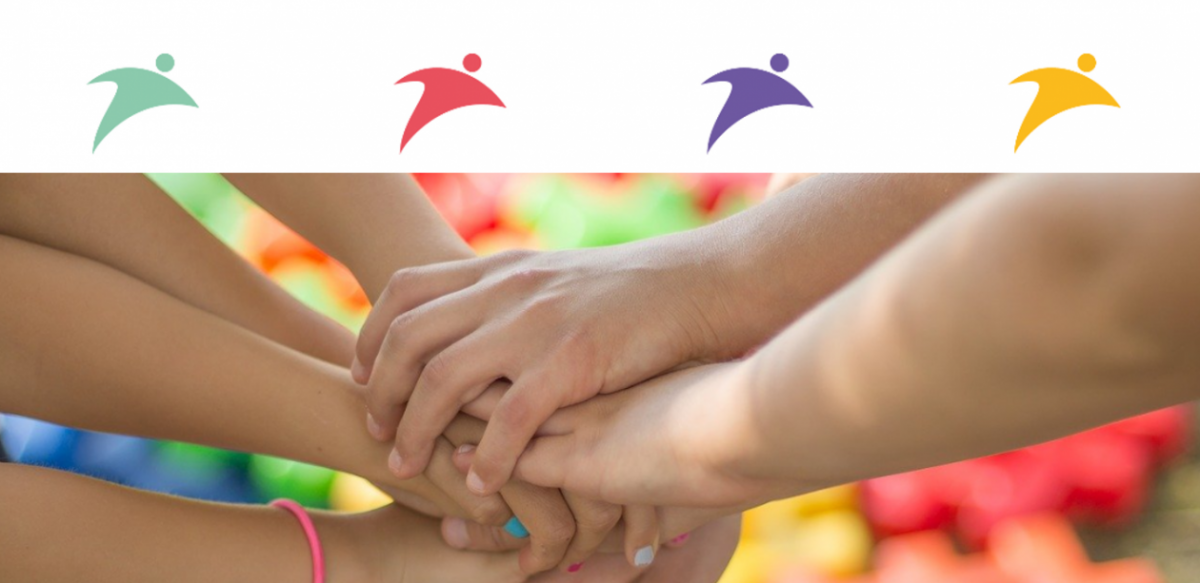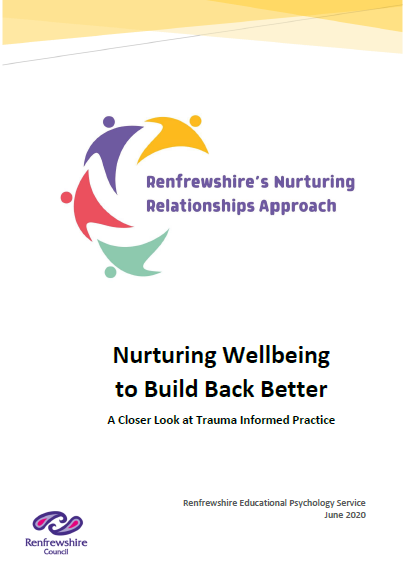The wellbeing of staff, children and young people and their families must be our highest priority as we reopen schools. As we build back better, I would like to again acknowledge all the work that has been undertaken by staff both before lockdown and during the time when we have all been working from home that has focussed on supporting and nurturing the wellbeing of our children and young people and families.
To support this nurturing of wellbeing further, the resources being launched today build on the knowledge, expertise and practices already in place as a result of Renfrewshire’s Nurturing Relationships Approach (RNRA) and trauma-informed approaches across Renfrewshire. These skills and practices are exactly those that will support wellbeing during recovery and return.

Renfrewshire Educational Psychology Service (REPS) has produced these new resources to support establishments in understanding the community trauma caused by COVID-19 and to set out how nurturing approaches will be key in supporting wellbeing and recovering from this trauma. These new resources follow on from the “virtual nurturing” resources provided to support children and young people during lockdown. They give very practical guidance to support the wellbeing of staff, children, young people and their families. The resources support and are consistent with wider mental health approaches and with developing Non-violent Resistance approaches being used within Children’s Service.
There are three resources:
Nurturing Wellbeing to Build Back Better: A Summary of Trauma Informed priorities for Educational Establishments
Nurturing Wellbeing to Build Back Better A Summary of Trauma Informed priorities
The Summary document contains the guidance most relevant to establishments immediate priorities and gives key information. This resource is easily accessible for all staff.
Nurturing Wellbeing to Build Back Better: A trauma informed resource
RNRA Nurturing Wellbeing Extended Resource
The full resource contains more detail and is designed for those leading the establishment’s recovery response and return and for fuller discussion and planning by RNRA Core groups.
Nurturing Wellbeing to Build Back Better: A Resource to Support the Development of Trauma Informed Approaches
This resource contains more detail for those leading the development of trauma informed approaches across the establishment. This document will be launched in the near future.
The structure based around the Nurture Principles in these resources will be familiar to those establishments already involved with RNRA, but it is hoped that these resources will be helpful and easily accessible for all. Please contact your link EP if you would like to discuss how you would integrate these resources into your recovery response and return planning. Establishments already engaged in RNRA may wish to revise or re-focus your RNRA action plan using these resources to make it more relevant to your plans for your recovery response and return.
Gordon McKinlay
Head of Schools
Renfrewshire Council
















